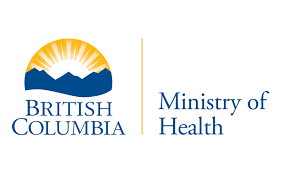- Bone Health
- Immunology
- Hematology
- Respiratory
- Dermatology
- Diabetes
- Gastroenterology
- Neurology
- Oncology
- Ophthalmology
- Rare Disease
- Rheumatology
British Columbia Switches From Humira to 5 Biosimilar Versions
Anticipating roughly $26 million in annual savings, British Columbia's public payer PharmaCare is switching patients away from originator Humira.
Editor's note: All currency figures in this story have been converted from Canadian dollars to US dollars.
British Columbia’s public health system, PharmaCare, aims to save up to $80 million over the next 3 years by implementing the latest phase of its biosimilars switching program, which is transferring roughly 6000 patients taking the Humira originator version of adalimumab to one of 5 adalimumab biosimilars: Amgevita, Hadlima, Hulio, Hyrimoz, and Idacio.
In addition, PharmaCare will expand use of biosimilar versions of etanercept to encompass patients with plaque psoriasis currently being treated with the originator product, Enbrel.
“Biosimilars are highly similar versions of their biologic drugs, meaning they are just as safe and effective, but are a fraction of the cost,” said Adrian Dix, minister of health for British Columbia. He said the savings from the biosimilars switching program have enabled the province to expand coverage of treatments and add more drugs to formulary, making health care more affordable for residents of British Columbia.
First to Implement
British Columbia was the first of the Canadian provinces to implement mandatory biosimilar switching programs. The first phase was initiated in May 2019, when patients with ankylosing spondylitis, rheumatoid arthritis, psoriatic arthritis, plaque psoriasis, and diabetes (type 1 and type 2) were switched from etanercept, infliximab, and insulin glargine reference products to biosimilars. A second phase began in September 2019, when patients with Crohn disease and ulcerative colitis were switched from reference infliximab to biosimilar versions.
The newest switch to adalimumab biosimilars will affect patients under treatment for rheumatoid arthritis, polyarticular juvenile idiopathic arthritis, ankylosing spondylitis, Crohn disease, ulcerative colitis, hidradenitis suppurativa, moderate to severe plaque psoriasis, and psoriatic arthritis.
Since the May 2019 start, more than 90% of PharmaCare beneficiaries are on biosimilar drugs for infliximab, etanercept, and insulin glargine. The May 2019 inaugural switching phase and the second phase have involved 22,700 patients. A rituximab switching program was announced in August 2020 and was reported to involve 1600 patients.
Explaining the rationale for the mandatory switching, British Columbia officials said biologic medicines have become the “single biggest expense for public drug plans, and their costs continue to climb.” PharmaCare spent almost $75 million on Humira from December 1, 2019, to November 30, 2020. The health agency estimated that savings of 15% to 50% are available from biosimilars.
A 2020 report by the Ontario Drug Policy Research Network said that achievable annual savings from biosimilar switches could approach $341 million for provincial drug plans in Canada just by switching patients from the 3 top-selling reference biologics: Humira, Enbrel, and Remicade. “A similar magnitude of savings would be available for employer-sponsored benefit plans,” the report said.
Indeed, in a recent interview, Pacific Blue Cross, one of the health care plan providers in British Columbia, reported generating hefty savings from biosimilar switches.
Newsletter
Where clinical, regulatory, and economic perspectives converge—sign up for Center for Biosimilars® emails to get expert insights on emerging treatment paradigms, biosimilar policy, and real-world outcomes that shape patient care.

